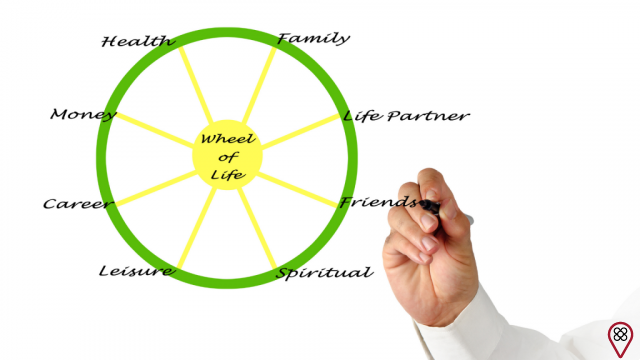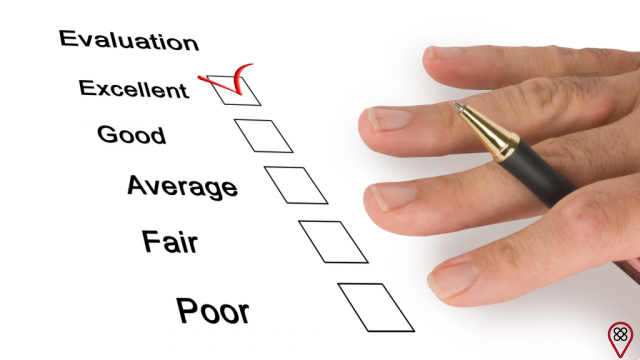Have you heard about the Wheel of Life? Although it has this complicated name and that seems to bring an idea of spirituality, it is nothing like that. Because the Wheel of Life is just a method often used by coaches and mentors to create an overview of your life, mapping problems and joys.
Regardless of what your current situation is, the Wheel of Life allows you to visualize which areas of your life are doing well and which are having trouble. So this allows you to focus on what needs your attention to have a better quality of life. So understand all about the Wheel of Life!
What is the Wheel of Life?
The Wheel of Life is a quality of life analysis tool created in the 1960s by the American millionaire Paul J. Meyer. He has become one of the most sought-after speakers in the world and is a bestselling book, audiobook, lecture and course.
The Wheel of Life is a circle that helps us visualize which areas of our lives are doing well., and it does this through a sort of mixture of bar and pie charts that allows us to literally visualize which areas of life are doing better than others. Check out the details below!
How does the Wheel of Life work?
The Wheel of Life is a circle drawn on paper (or digital) subdivided into 8 cones (lines that leave the center of the circle and “go up” towards its limit). Each of these cones represents an area of our lives: family, career, finance, health, spirituality, education, friends, culture and love.

There are variations that include other categories or that exclude some of these.
The inner part of each of these cones is subdivided into 10 steps, which are lines drawn inside it. Each line will represent a point on the score from 0 to 10 that you will give to a certain area of your life, which will allow us to visualize in a graph how things are in each of them.
How to fill the Wheel of Life?
After finding a model or making your Wheel of Life by hand, it's time to fill in each of the areas with scores from 0 to 10. So check out some questions we've separated about each area. Their answers will allow you to find a score from 0 to 10 for the category:
- Family — How is your relationship with parents/siblings and other family members? Are you married? Have children? If yes, how is your family? Do you spend time together, travel together, do shows together? Are you following the growth of your child(ren) closely?
- CAREERS “What have you dreamed of working with and how close are you to it these days?” How satisfied are you with your current job? Do you like the functions? Do you feel productive? Do you feel that you contribute to people and/or the world with your job?
- Finances — How happy are you with your standard of living? Do you have most of what you would like to have? Do you have a financial reserve? Do you save money thinking about the future? Invest in yourself? Do you use part of your money for your leisure? How is your heritage?
- Health — Have you had regular appointments to check on your health? If he has any health problems, how is he? Are you in control? Do you maintain a physical exercise routine? Do you maintain a healthy diet? How much do you dedicate yourself to taking care of your body? And your mental health? How are you stress/anxiety? How much do you dedicate to taking care of the mind?
- Spirituality — Do you have beliefs and/or follow a religion? If yes, how much is involved in it? Would you like to be more involved? Do you think these beliefs/religion help you to find meaning in life and more quality of life and well-being? What spiritual practices do you maintain, such as meditation, yoga, prayers, attendance at services, etc.?
- Education — Are you a college graduate? If yes, how do you feel today about your education? If not, what stopped you from pursuing it? Does this cause you frustration? Have you invested in post/master/doctorate? How important is this to you? Do you take courses in addition to those required by your career, such as languages, among other hobbies?
- Friends — Do you have people you can count on and/or who have needed you? Do you feel close to these people? Do you feel that you can trust them? How often do you dedicate your time and attention to your friends? How do you rate your circle of friends? Do you want to have more and/or other friends?
- Culture — How is your leisure time? How is your leisure time with yourself, not involving family and friends? Do you have hobbies? Do you have personal projects? Have you been traveling? Going to the movies? Going to restaurants, museums, sporting events, among other activities to rest and enjoy life?
- Care — How is your love life? You are in a relationship? If yes or no, how do you feel about it? If you're not, would you like to be? Does this cause you frustration? Do you have trauma from past relationships that you feel is hampering your quality of life in the present? If you are in a relationship, is it healthy and good for you?
How to do the analysis?
In summary, based on the questions we have formulated and many that you can create yourself that make sense in your life and in your walk, establish scores from 0 to 10 for each of these areas.

Then paint the “steps” inside the cone representing each of the areas. After that, it is already possible to visualize in which areas your life is developed and which of them you feel could be better. In addition, it is possible to do a sum of the points to see how much you “scored”.
But remember, when you are answering the questions, to set goals and desires that are feasible, otherwise you may end up scoring too few points in all areas.
That's why it's important that you are guided by realistic goals. If, when thinking about the financial area, we all set the goal of “being a billionaire”, only 1% of the world's population would score more than 1 point in this category, right?
What to do after the Wheel of Life?
The ideal thing is that you do the Wheel of Life with professional support, whether from a psychologist, a coach, a mentor or another professional. That's because, although you have insights when you visualize the result of the tool, a professional has resources and knowledge to bring questions and solutions.
Nevertheless, if you decided to do the analysis yourself, the very process of answering the questions to come up with a grade for each area of your life should have already helped you understand what is not working and/or could be better. From there, start making the changes necessary to have the life you want to have.
But keep in mind that not everything depends on you! This helps to avoid frustrations. Goals such as “living a great love”, “having the job of my dreams”, “achieving financial success”, among others may not depend only on your effort. So don't be too hard on yourself.
You may also like
- Learn to develop your self-knowledge process
- Uncover the importance of self-knowledge and self-care
- Understand flower therapy as a form of self-knowledge
Any tool that helps us understand what our dissatisfactions are with the life we currently lead and that gives us insights into what can be better is a help. So use Roda da Viva to understand how your life can be better and better used and go towards change!

























